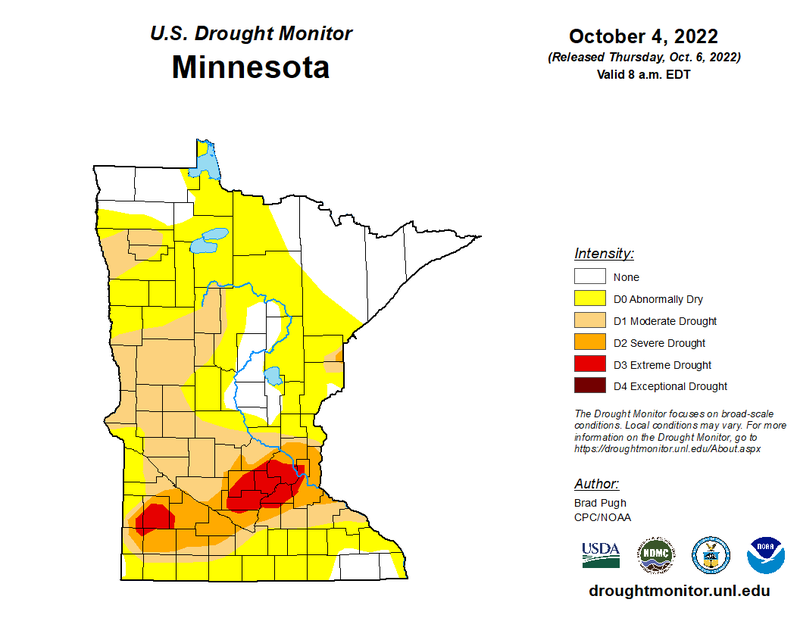The new United States Drought Monitor data shows the Twin Cities metro in severe or even extreme drought conditions in some places.
Tyler Hasenstein, a meteorologist with the National Weather Service in Chanhassen, said an early-season record snowfall could help, but given the situation we're in, the options aren't looking great.
“The best case scenario would be we do have some kind of large event such as that ends up melting later, before the ground is completely frozen, so we end up replenishing a bit of that groundwater before we reach the spring,” Hasenstein explains. “But obviously if we have a bunch of snowfall and then it just kind of sits there for a while, it's not really going to do anything until that begins to melt.”
Hasenstein said we are not looking at any chances for meaningful rainfall in the near future. But he adds that if we are going to experience drought, this is the best time for it to happen.
“One thing that I guess is working in our favor is just the time of year that this is happening as the drought impacts, even though we're in the extreme drought category, they are less pronounced when we get into the winter months as opposed to if this happened during the summer,” Hasenstein told WCCO.
That may not hold true come spring however. National Weather Service meteorologist Caleb Grunzke said Thursday that drought this late in the year could have a big impact in the spring.
“We're already behind on soil moisture and just there's a good chance it just gets worse as we head through next summer,” Gunszke says. “So you're just starting farther behind, harder to catch up again. And basically the only thing that we can hope for is basically a really good winter that can then melt in the spring and replenish our ground moisture.”
The National Weather Service Twin Cities noted that we just experienced the driest September since records have been kept in Minnesota (1871). Coming off a very dry summer and with no measurable precipitation in the forecast spells bad news as we head towards winter.
The good news has been for farmers who have had no trouble getting in their fields for harvest thanks to the dry conditions, but those same farmers may see very dry fields come next spring.
There are also reports from many parts of the metro and central Minnesota of low lake and river levels as well. WCCO’s Chief Meteorologist Paul Douglas says he has been hearing from listeners who are having issues getting their boats out of the water this fall due to low lake levels.



